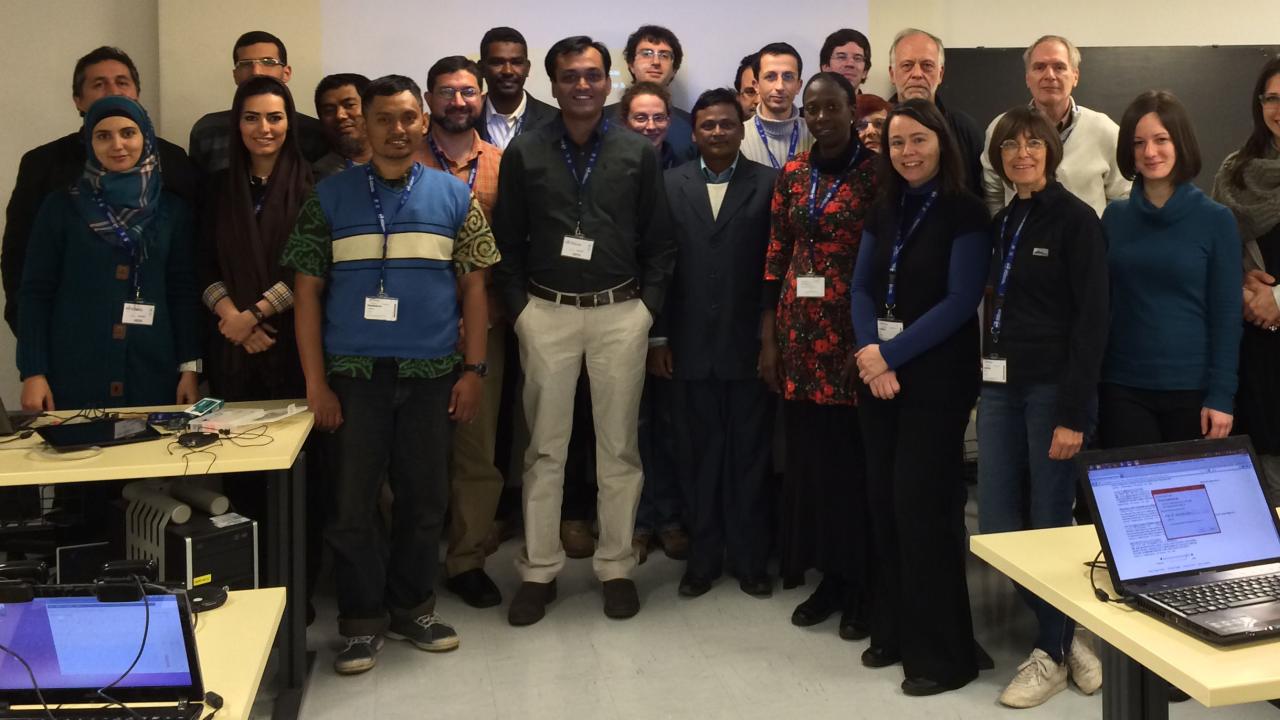
Scientific activities at ICTP are not just about increasing competence within the scientific community but also ensuring that the knowledge reaches those who may not have easy access to science. This idea was at the core of a recently held workshop on m-Science and science dissemination for people with disabilities. The workshop, which ran on 6 and 7 February 2014, was organised by ICTP's Science Dissemination Unit (SDU). It brought together two ideas that can make science more accessible and inclusive. "The hope is to create innovative channels of communication based on the integration of different open, affordable, and mobile technologies for educating people with disabilities," says Enrique Canessa, coordinator of SDU.
M-Science, or mobile science, uses mobile technology in powerful new ways to carry out scientific research, share results and disseminate knowledge in affordable ways. The SDU has been tapping into mobile technology (mobile phones, tablets, netbooks, etc.), the use of which has become almost ubiquitous around the world, to nurture scientific culture, especially in developing countries. This workshop was a continuation of the first one on m-Science held in 2010.
The workshop began with a focus on the latest developments in m-Science, including mobile data collection and environmental monitoring, remote sensing at large scales, capturing brainwave data on mobile devices, and m-Learning. "M-Science has the potential to change science education in developing countries because mobile devices can be used as effective learning tools to access knowledge and at one's own pace," says Canessa.
Day two gave participants insights into how science can be made accessible to people with disabilities. Canessa points out that people with disabilities face the risk of exclusion from science education or even education altogether, and the situation is exacerbated in developing countries due to high costs of rehabilitation techniques or lack of awareness about the available technologies.
To address these issues, speakers at the workshop presented interesting initiatives to take science to people with disabilities. These initiatives included "Astro vers Tous", presented by Dominique Proust from the Observatoire de Meudon in France, which promotes studies in astronomy for people with hearing impairments. Other speakers introduced novel concepts to the participants, ranging from using 3-D printing technologies for building prosthetic limbs to developing science education methods for students with visual and speech impairments and developing a science syllabus to reach out to those with autism.
Recordings of these discussions are available on the ICTP.tv website under the Conferences link.
















